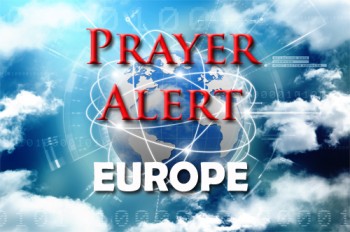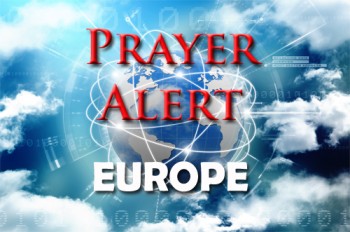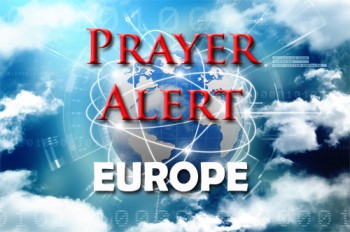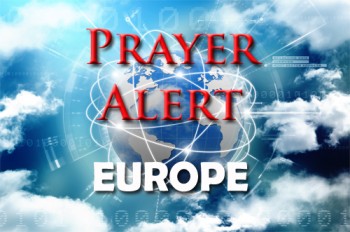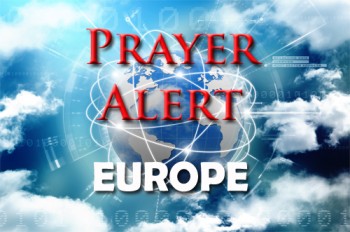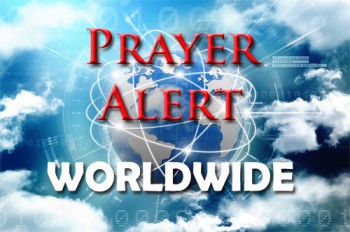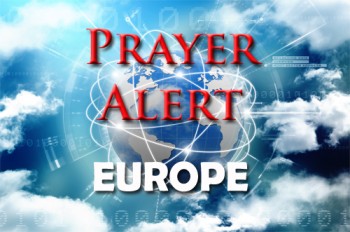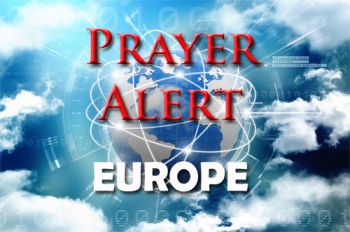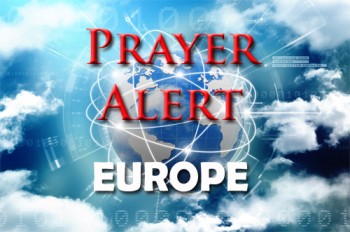Displaying items by tag: Europe
Europe: policing borders amid Covid-19 rise
With the rise of the Covid Delta variant, Europe is divided on how to police its borders. Paris and Berlin are concerned about the influx of British tourists to southern Europe and are calling for a coordinated effort as the variant continues its inexorable advance across the continent. Its rise is rekindling tensions over the management of the EU's external borders. These divisions were much discussed at the beginning of the pandemic and resurfaced at the European summit in Brussels last week. Some want to err on the side of prudence; others such as Spain, Portugal and Greece are anxious to protect their all-important tourist seasons. There is no blanket health policy covering Europe, but there are health policies that need to be coordinated between the 27 member states.
Germany: far right abuse and racism
The German defence minister told the armed forces that reported racist and sexual abuse in a German platoon based in Lithuania has put their entire reputation at risk. The most recent incidents were a sexual assault against another soldier, singing anti-Semitic songs, and in April singing songs to mark Hitler’s birthday. There is a pattern of far-right extremism in the army: a soldier allegedly racially abused a non-white fellow soldier, and four German soldiers made animal noises when a black French soldier walked past. Far-right incidents in the elite KSK commando unit triggered calls for it to be disbanded as it had become partly independent of the chain of command. Police seized explosives and weapons at the home of a KSK soldier. Military intelligence said there were almost 600 suspected far-right supporters in the army, the KSK being a particular problem. Twenty members are suspected of right-wing extremism.
Germany: largest extremist group is Turkish, not German
It is estimated there are over 18,000 Grey Wolves in Germany, five times more than the number of members of Germany’s neo-Nazi party. The Grey Wolves movement is a Turkish version of Aryanism opposed to anyone who is not Turkish or Sunni Islamic. It is anti-Christian, anti-Jewish, anti-American, anti-Armenian, anti-Kurdish and anti-Greek. Its objective is to establish a new world order based on Islam and led by Turkey. Members are opposed to the assimilation or integration of Turkish immigrants into Western society, and its supporters are responsible for a large number of murdered political opponents and members of minorities in Turkey and abroad. Germany’s Christian Democratic Union is working with this group, although it preaches that right-wing extremism is the greatest danger in Germany. Associations linked to Grey Wolves strive for a moderate appearance in their external presentation and tend to cultivate their right-wing extremist ideology internally.
Hungary: LGBT content to be banned?
A Hungarian children's book promoting minority rights drew criticism last year. Now Hungary's ruling nationalist party has submitted legislation to ban content which it sees as promoting homosexuality and gender change to minors. The draft law would ban LGBT literature for under-18s, including educational material, and advertisements deemed to be promoting gay rights. Several human rights groups denounced it, saying it was similar to Russian restrictions on LGBT activities. Hungary's constitution states that marriage is for heterosexual couples and proposes a same-sex adoption ban.
EU - UK sausage spat sizzles at summit
The UK has accused France of the ‘offensive’ remark that Northern Ireland is not part of the UK. Since 2016 the two sides have been trying to work out how to deal with post-Brexit trade and Northern Ireland’s land border with the EU. The latest spat is centered on sausages. When Boris Johnson met Emmanuel Macron at the G7 summit, he asked him to imagine if Toulouse sausages were barred from sale in Paris, which left Macron ‘astonished’. He told him Toulouse is part of the same territory, and inaccurately said, ‘Northern Ireland was not part of the United Kingdom’. Johnson furiously replied, ‘Northern Ireland and Britain are part of the same country.’ After the testy exchange Johnson told the media, ‘Some of our friends seem to misunderstand that the UK is a single country and a single territory. I think they need to get that into their heads.’
Ireland: a vision for the future
Leo Varadkar, the Irish deputy prime minister and the leader of Fine Gael, says that while the views of unionists must be ‘acknowledged and respected, ‘no one group can have a veto on Ireland's future’. He told delegates at a virtual Fine Gael conference on 15 June that he wanted to see the party establish a branch north of the border. ‘We should be proud to say unification is something we aspire to, It should be part of our mission as a party to work towards it.’ He also said there was a growing middle ground in Northern Ireland, and Fine Gael should reach out towards it. However, he said unification must not be the ‘annexation’ of Northern Ireland. ‘It means a new state in which almost a million people are British. Like the new South Africa, a rainbow nation, not just orange and green.’
USA / Russia: relations warming
Before talking in Geneva relations between the USA and Russia were at rock bottom. After talking, both presidents praised their talks but have made little concrete progress at the first such meeting since 2018. Disagreements were stated, said Joe Biden, but not in a hyperbolic way, and he said Russia did not want a new cold war. Vladimir Putin said Mr Biden was an experienced statesman and the two ‘spoke the same language’. They agreed to begin a dialogue on nuclear arms control and said they would return ambassadors to each other's capitals. However, there was little sign of agreement on cyber-security, Ukraine, or the fate of Russian opposition leader Alexei Navalny, who is currently serving a two-and-a-half-year sentence in a penal colony. Mr Biden said there would be ‘devastating consequences’ for Russia if Navalny died in prison. Mr Putin hinted at a possible deal on exchanging prisoners, saying he believed compromises could be found.
Finland: prosecution of Christian MP and bishop
Law professors have urged the US commission on international religious freedom to intervene for the Finnish Christian MP, Pavi Räsänen, who faces criminal charges for tweeting her views on marriage and sexuality. The bishop-elect of the Evangelical Lutheran Mission also faces prosecution for publishing a booklet in which Ms Räsänen made similar comments. The professors ask the commission to ‘press our government to use its legal powers and fulfil its duties under US law to aid victims of human rights violations such as Pavi Räsänen and Bishop Juhana.’ The prosecutor general’s pursuit of these charges sends an unmistakable message to all Finns: no one who holds to the traditional teachings of Judaism, Christianity, Islam, and other religions on questions of marriage and sexual morality will be safe from state harassment if they openly express their moral and religious convictions.
Europe: a church planted daily
M4 Ready is a ten-month online training course for people who have a potential to plant, lead and multiply churches in their nations. It is intended for younger leaders in local churches, denominations, networks or organisations with a more than average leadership potential who already have some track record of entrepreneurship, initiating new things, and bringing change. The M4 team process goes on to give further two years of training that seeks to help the church planter and their team succeed in the first years of church-planting. Success means that, at the end of the training process, the team is prepared to launch a healthy reproducing church that glorifies God and impacts society. See also the UK article ‘Bringing the Word of God back to the UK’.
Serbia and Kosovo leaders to hold reconciliation talks
The leaders of Serbia and Kosovo will meet imminently to restart the EU-brokered dialogue that would normalise relations and put both nations on a path to European Union membership. The date for a meeting will be announced shortly by the EU's foreign policy chief. The dialogue is the only path to membership of the European Union for both nations. Talks began a decade ago but have stalled in recent years. A change of government and a new prime minister with a strong political mandate in Pristina has increased the chances of successful talks between the two neighbours. In February Albin Kurti was elected in a landslide victory and has repeatedly said he wanted a full apology from Serbia for its actions during the 1998-99 conflict, which led to the displacement of a million Kosovars and at least 20,000 deaths. The politicians may make many public statements, but what really matters is what is said in discussions.
